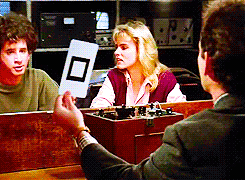In 2011, I was part of the Summer class of Y Combinator, working on a startup creating online games, and I was stuck on a problem.
I hadn’t slept well for days. Weeks. I stayed up as long as I could keep my eyelids open each night, powering through work with tons of caffeine. I NEEDED TO FIGURE THIS OUT.
One night, as my hands started to shake, and my heart pounded in my chest, I called my wife and told her:
“I think I’m having a heart attack.”

We’ve all been in situations where we needed to come up with solutions to tough problems. Probably more times than you want to remember. And, I bet, all that thinking sometimes led to some headaches and stress.
But did it lead to a good decision?
In 2009, 4 researchers, Loran Nordgren (Northwestern University) and Ap Dijksterhuis, Maarten Bos, and Rick van Baaren (Radboud University Nijmegen), wanted to find out.
So they gave study participants a decision to make: which car is the best quality (as determined by outside judges) given a set of criteria to read. One group of participants was given simple criteria to determine the quality of those cars, while the other group of participants was given more complex information.
Then, each of those groups of participants were either given time to think consciously about their decision on which cars were higher quality or the participants were distracted by a game so they didn’t have conscious thought available to spend thinking about these cars.
Of the participants who only had to come up with car quality decisions based on simple criteria, they all did well, whether you had to think consciously about it or you were distracted. No big surprise.
But, for the complex car decision, this is where it got interesting.
The people, who spent conscious time just thinking about their decision on which car was the highest quality, only got the decision right 20% of the time. That’s much worse than a coin flip. But of the folks who were distracted by something else, they were right about 60% of the time.
This was just a lab result though. Does it work in the real world?
The researchers came up with another experiment. This time, they went through a bunch of products from a store like IKEA. They had a set of separate judges rank 40 products from simple to complex purchases. Then these researchers went and surveyed people who bought these products. The survey asked participants how much time they thought about making their purchases beforehand. Was it a lot of conscious thought or unconscious?
For complex purchases, it was the people who spent less time thinking about the purchase beforehand who were happier with their purchases weeks later.
Now, this isn’t some black and white strategy. But it sure does lend evidence that “sleep on it” before having to make a complicated decision sounds like pretty good advice.
A few weeks ago, we moved our backend provider for how we store files in Highrise.
It wasn’t going that well.
This is some stuff that’s been running for years. Changing it introduced all sorts of problems in corners of our application that hadn’t been explored in a while. There was plenty of planning and procedures to back out of trouble. But still, on a Thursday morning at 3AM, Michael Dwan, our CTO, and I found ourselves putting out fires.
I was a wreck the next day. Completely useless. I should have just taken the day off.
But… I’ve learned my lesson.
I got to bed early on Thursday. Friday I took the whole afternoon off to just hang out with my kid and my mom. We went to the zoo. Had lunch. It was fantastic and I felt recharged.
Five years ago, when I called my wife about my impending heart attack, I had already been powering through weeks of sleep deprivation with Red Bull and coffee, despite the constant advice from partners at Y Combinator to take care of ourselves. But that night, I decided to try a shot of 5 hour energy just to top things off.
Thank god I was eventually able to calm my breathing and heart rate. Hopefully I haven’t caused myself permanent damage. It’s a lesson that sticks with me deeply today. What was I thinking? That was freaking scary.
For what? What was it all worth? For my startup to succeed? That software I was working on isn’t even around anymore.
And I never did come up with a solution to the thing I was struggling with the most during those caffeinated benders. Maybe I could have, if I had just gotten plenty of sleep.
P.S. You should follow me on YouTube: here, where I share more about how we run our business, do product design, market ourselves, and just get through life. Also if you’ve enjoyed this article, please help it spread by clicking the ❤ below.
And if you need a no-hassle system to track leads and manage follow-ups you should try Highrise.


